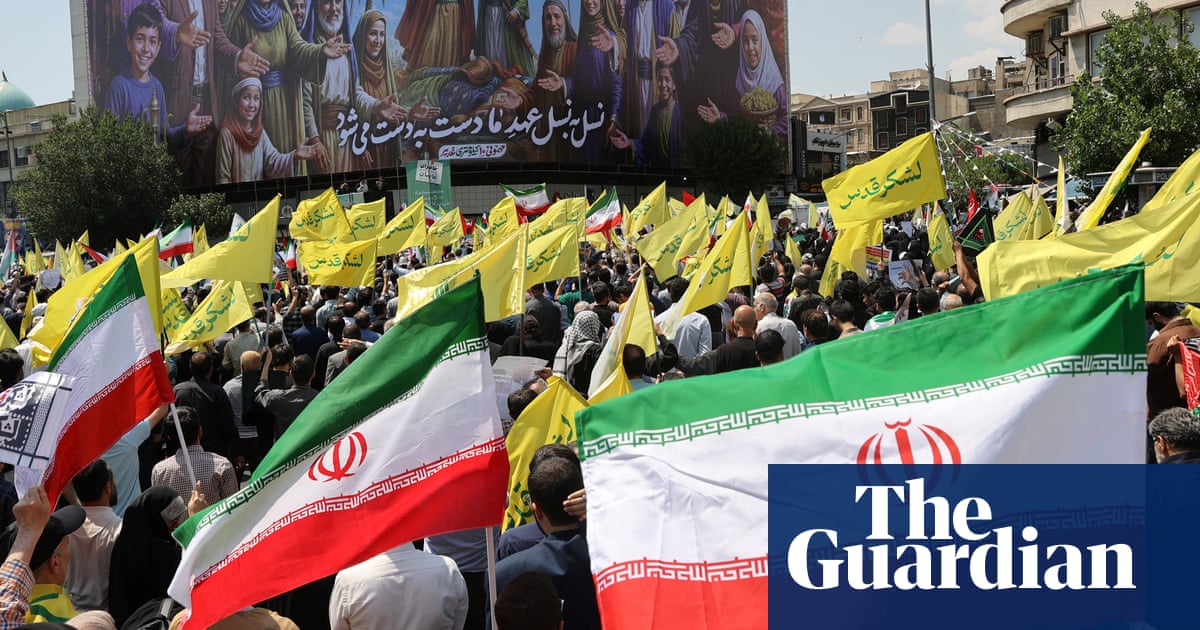Nations across the Middle East have condemned the Israeli strikes on Iran, calling for urgent de-escalation amid concerns that tit-for-tat retaliation could lead to a wider war with regional fallout.
Israelcarried out hundreds of strikesacross Iran, killing top military and nuclear officials and targeting nuclear facilities – the most serious Israeli attack on Iran ever. Iran responded by launching at least 100 drones and ballistic missiles in Israel’s direction, most of which were shot down, according to the Israeli military. Iranhas vowed revenge, with the country’s supreme leader, Ayatollah Ali Khamenei, threatening “severe punishment”.
The foreign ministries of the Gulf Cooperation Council countries – with the exception of Bahrain – all denounced the Israeli strikes and urged a diplomatic resolution to the conflict. Lebanon and Jordan issued similar statements.
Saudi Arabia’s foreign ministry said the Israeli attacks against Israel “constitute a clear violation of international laws and norms”.
“While the Kingdom condemns these heinous attacks, it affirms that the international community and the Security Council bear a great responsibility to immediately halt this aggression,” a statement from the Saudi foreign ministry said. The Saudi foreign minister, Faisal bin Farhan, later called his Iranian counterpart, urging a “rejection of the use of force”.
Though many states in the Middle East, particularly in the Arab Gulf, are historically hostile to Iran and its influence in the region, a fully fledged war between Israel and Iran is not in their interest.
Escalation threatened regional fallout, with intercepted Iranian missiles falling in the countryside of southern Syria, schools closing in south Lebanon and Jordanian jets shooting down drones and missiles.
In the past, Iran and its proxies’ targets have included oil facilities in Saudi Arabia and US military personnel in the Middle East. The US has military bases across the region, including in Qatar, Saudi Arabia, Jordan and the UAE. Iran’s ability to disrupt the oil trade, with its control over the strategic strait of Hormuz, could threaten the economic interests of the Gulf states.
Iran backs a network of militias across the region, such as the Houthis in Yemen, the popular mobilisation forces in Iraq andHezbollahin Lebanon, which could all also be involved in an Iranian war with Israel.
The militias are a core part of Iran’s defence doctrine, a concept it refers to as strategic depth, which relies on its allies and proxies to create layers of defence and deterrence throughout the Middle East. Under the doctrine, an Israeli attack could be met with a missile from neighbouring Lebanon, Yemen or Iraq.
Iran’s allies, however, have been severely weakened by almost two years of fighting with Israel. Hezbollah, Iran’s most important regional proxy, had most of its senior leadershipkilled in Israeli strikeslast autumn and its weapons caches have been confiscated by the Lebanese state.
The Iran-backed militias gave no indication on Friday that they would get involved in the Iran-Israel conflict, issuing relatively measured statements in the aftermath of the strikes.
Hezbollah condemned the attacks but said the group would not initiate a strike on Israel, while theHouthissaid that they “support Iran’s right to defend itself”. Hezbollah and other members of the Iranian axis have been severely battered over the past year of fighting with Israel, as well as by the fall of Iran’s ally Bashar al-Assad in Syria.
The lukewarm response by Iran’s allied militias was a strong contrast to its firstattack on Israelin April 2024, when drones and missiles were launched from Lebanon, Iraq and Syria alongside its own.
